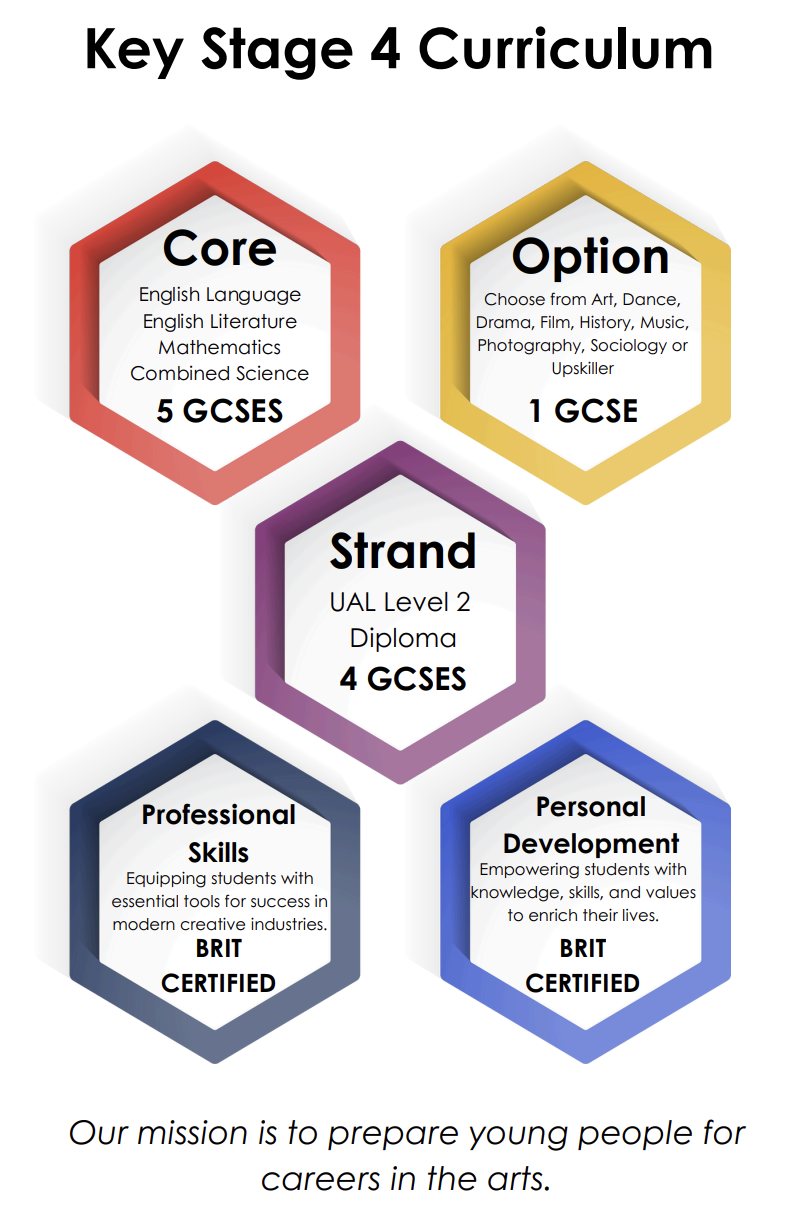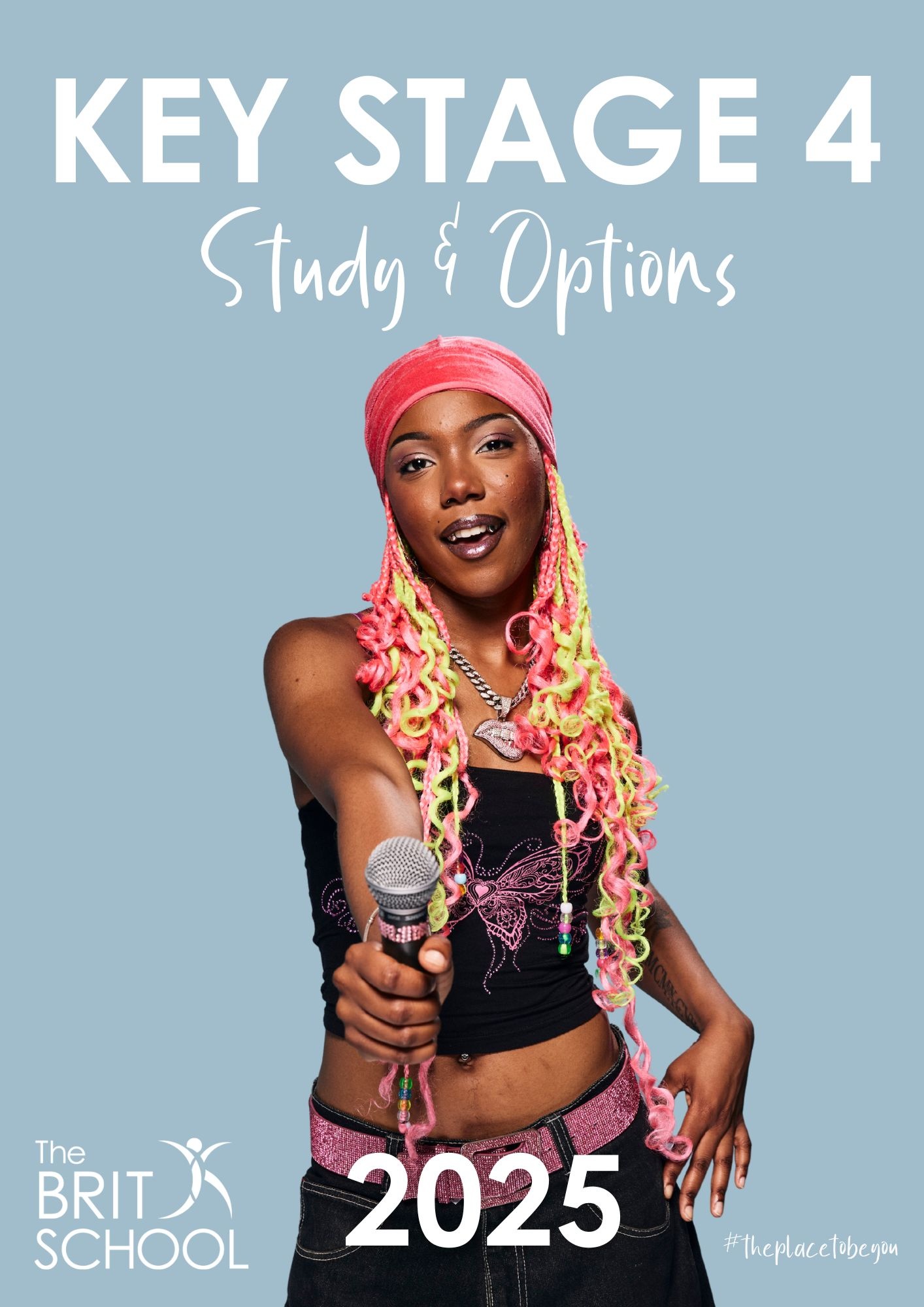Our new Key Stage 4 Study & Options Programme can be accessed here. Please read this booklet carefully.
1. Strand (Specialist Course)
This is the specialist creative area you have chosen to study at The BRIT School.
- Film & Media Production
- Dance
- Interactive Digital Design
- Music
- Musical Theatre
- Theatre
- Visual Arts & Design

